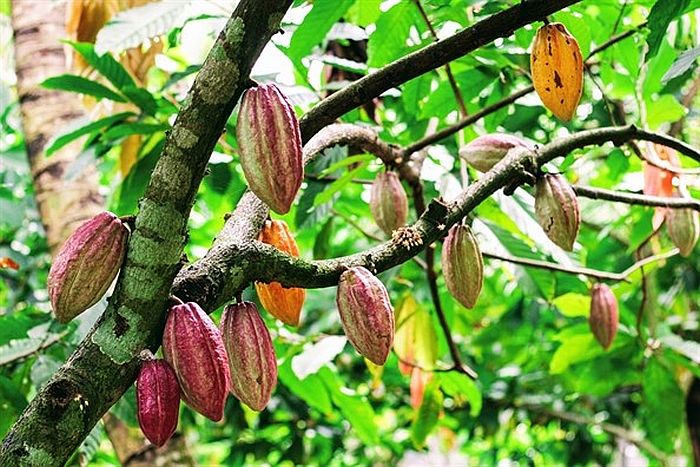
Health and Nutritional Benefits of Cocoa Powder
Share
The Ancient and Evolving Power of Cacao
Cacao was first used by the Maya civilization in Central America. It entered Europe in the 16th century and quickly gained popularity as a powerful health elixir. Today, cacao is primarily known as the core ingredient in chocolate—a beloved food with a wealth of health benefits.
The cacao content in chocolate is what truly delivers these benefits. Its rich flavor and appealing appearance make it irresistible, but the real magic lies in its health-promoting compounds. Research by Dr. Sally Norton has analyzed the impact of cacao on human health, highlighting its vast therapeutic potential.
Pure Cacao: A Superfood in Its Own Right
High-quality cacao powder, especially natural, unsweetened cacao, is a superior ingredient for creating sugar-free and low-fat chocolate treats. Unlike commercial chocolates, which often contain added sugar and fat, pure cacao retains its nutritional richness.
Natural cacao powder boasts the highest levels of flavanol antioxidants. Recent studies have also shown that dark chocolate and cacao contain notable amounts of resveratrol—an antioxidant found in red wine known for its heart-protective effects.
Cacao also contains methylxanthines, including small amounts of caffeine and higher levels of theobromine. While caffeine may increase alertness, theobromine helps promote calmness and can improve sleep. A warm cup of cacao before bed may enhance your sleep quality.
Dark Chocolate: Choosing the Right Type
To maximize cacao’s health benefits, choose dark chocolate with a high cacao percentage. A chocolate bar containing 70% cacao has double the antioxidant content of one with 35%. Always check the label for cacao content and added ingredients.
Cacao Lowers Blood Pressure and Supports the Heart
Cacao, in both powder and dark chocolate form, may help reduce blood pressure. This was first observed in Central American island populations who regularly consumed cacao and had significantly lower blood pressure.
Flavanols in cacao enhance nitric oxide levels in the blood, improving blood vessel function and lowering blood pressure. These effects are more pronounced in older individuals and those with high blood pressure. However, it’s important to note that processing can significantly reduce flavanol content.
May Reduce the Risk of Heart Attack and Stroke
Cacao's flavanols support arterial function, reduce LDL cholesterol, improve blood flow, lower blood sugar, and reduce inflammation—all of which contribute to a lower risk of heart disease and stroke.
Swedish studies found that consuming 19–30g of chocolate daily was associated with a reduced risk of heart failure. However, consuming more than this recommended amount did not yield additional benefits.
Cacao and Liver Health
Animal studies suggest that daily cacao consumption may reduce fatty liver caused by high-fat diets. As fatty liver disease becomes increasingly common, especially among individuals who are overweight, adding cacao to the diet may offer protective benefits.
Flavanols and Type 2 Diabetes
Despite common beliefs, cacao may actually benefit blood sugar control. In vitro studies show that flavanols slow carbohydrate digestion, improve insulin secretion, reduce inflammation, and increase glucose uptake by muscles.
Clinical studies have shown that flavanol-rich cacao and dark chocolate can improve insulin sensitivity and reduce blood sugar levels in both diabetic and non-diabetic individuals.
Weight Management
Cacao may help regulate energy use, reduce appetite, lower inflammation, and increase fat oxidation and satiety. Studies show that regular chocolate consumers have a lower BMI despite consuming more calories and fat.
In a low-carb diet study, participants who consumed 42g of 81% dark chocolate daily lost weight faster than those on the standard diet alone.
Oral and Skin Health
Cacao contains antimicrobial, anti-enzyme, and immune-stimulating compounds that benefit oral health. However, most chocolate products contain sugar, so healthier formulations are needed to leverage cacao's dental benefits.
Cacao polyphenols are also great for the skin. Long-term cacao consumption has been shown to improve skin hydration, texture, circulation, and even offer some UV protection.
Processing Matters
The antioxidant benefits of cacao depend heavily on how it’s processed. Fermentation, roasting, and alkalization can reduce beneficial compounds. Alkalization, used to reduce bitterness in cacao powder, may destroy up to 98% of epicatechin—a key antioxidant.
To preserve these powerful compounds, cacao must be professionally handled from farm to consumer.